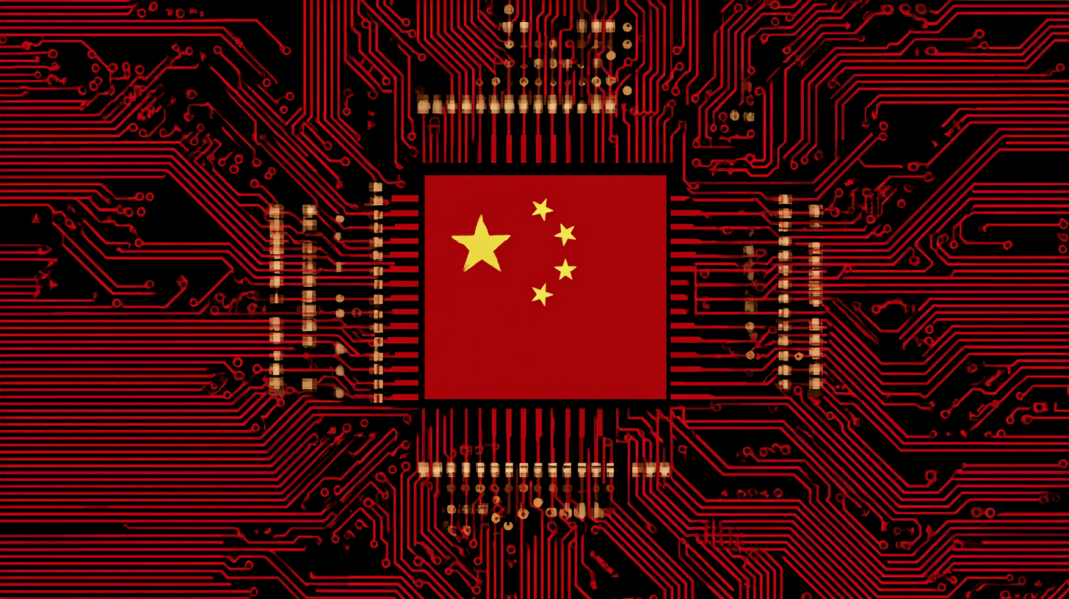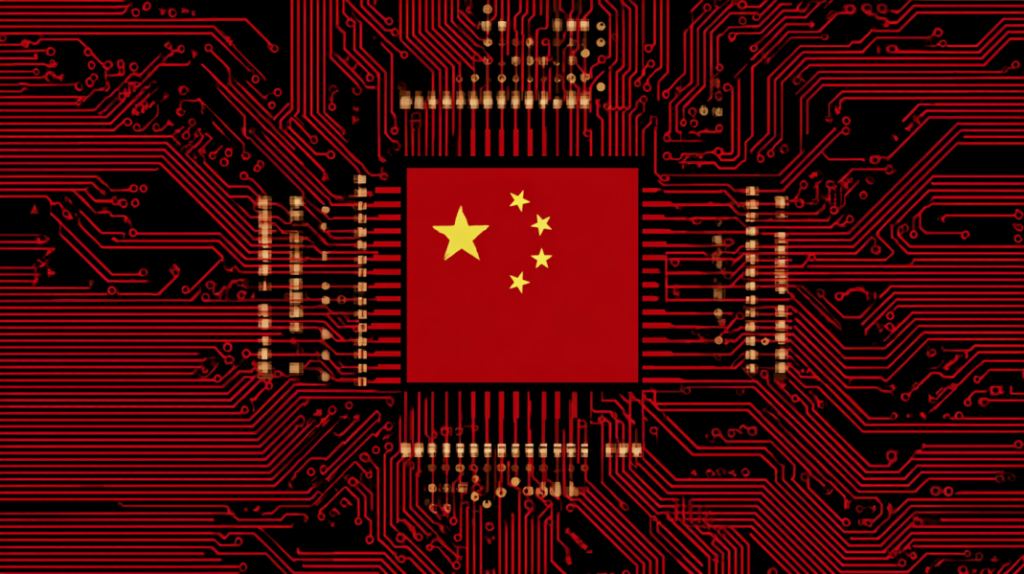
China is on observe to dominate client synthetic intelligence purposes and robotics manufacturing inside years, however the USA will preserve its substantial lead in enterprise AI adoption and cutting-edge analysis, in keeping with Kai-Fu Lee, one of many world's most distinguished AI scientists and traders.
In a uncommon, unvarnished evaluation delivered through video hyperlink from Beijing to the TED AI convention in San Francisco Tuesday, Lee — a former government at Apple, Microsoft, and Google who now runs each a serious enterprise capital agency and his personal AI firm — laid out a expertise panorama splitting alongside geographic and financial traces, with profound implications for each industrial competitors and nationwide safety.
"China's robotics has the benefit of getting built-in AI into a lot decrease prices, higher provide chain and quick turnaround, so corporations like Unitree are literally the farthest forward on the earth when it comes to constructing inexpensive, embodied humanoid AI," Lee mentioned, referring to a Chinese language robotics producer that has undercut Western opponents on value whereas advancing capabilities.
The feedback, made to a room full of Silicon Valley executives, traders, and researchers, represented one of the crucial detailed public assessments from Lee concerning the comparative strengths and weaknesses of the world's two AI superpowers — and advised that the race for synthetic intelligence management is changing into much less a single contest than a sequence of parallel competitions with completely different winners.
Why enterprise capital is flowing in reverse instructions within the U.S. and China
On the coronary heart of Lee's evaluation lies a elementary distinction in how capital flows within the two international locations' innovation ecosystems. American enterprise capitalists, Lee mentioned, are pouring cash into generative AI corporations constructing massive language fashions and enterprise software program, whereas Chinese language traders are betting closely on robotics and {hardware}.
"The VCs within the US don't fund robotics the way in which the VCs do in China," Lee mentioned. "Similar to the VCs in China don't fund generative AI the way in which the VCs do within the US."
This funding divergence displays completely different financial incentives and market constructions. In the USA, the place corporations have grown accustomed to paying for software program subscriptions and the place labor prices are excessive, enterprise AI instruments that enhance white-collar productiveness command premium costs. In China, the place software program subscription fashions have traditionally struggled to achieve traction however manufacturing dominates the financial system, robotics gives a clearer path to commercialization.
The end result, Lee advised, is that every nation is pulling forward in several domains — and should proceed to take action.
"China's acquired some challenges to beat in getting an organization funded in addition to OpenAI or Anthropic," Lee acknowledged, referring to the main American AI labs. "However I feel U.S., on the flip aspect, may have hassle growing the funding curiosity and worth creation within the robotics" sector.
Why American corporations dominate enterprise AI whereas Chinese language corporations wrestle with subscriptions
Lee was express about one space the place the USA maintains what seems to be a sturdy benefit: getting companies to truly undertake and pay for AI software program.
"The enterprise adoption will clearly be led by the USA," Lee mentioned. "The Chinese language corporations haven’t but developed a behavior of paying for software program on a subscription."
This seemingly mundane distinction in enterprise tradition — whether or not corporations can pay month-to-month charges for software program — has change into a important issue within the AI race. The explosion of spending on instruments like GitHub Copilot, ChatGPT Enterprise, and different AI-powered productiveness software program has fueled American corporations' skill to speculate billions in additional analysis and improvement.
Lee famous that China has traditionally overcome related challenges in client expertise by growing different enterprise fashions. "Within the early days of web software program, China was additionally nicely behind as a result of individuals weren't prepared to pay for software program," he mentioned. "However then promoting fashions, e-commerce fashions actually propelled China ahead."
Nonetheless, he advised, somebody might want to "discover a new enterprise mannequin that isn't simply pay per software program per use or per thirty days foundation. That's going to not occur in China anytime quickly."
The implication: American corporations constructing enterprise AI instruments have a window — maybe a considerable one — the place they will generate income and reinvest in R&D with out dealing with severe Chinese language competitors of their core market.
How ByteDance, Alibaba and Tencent will outpace Meta and Google in client AI
The place Lee sees China pulling forward decisively is in consumer-facing AI purposes — the sort embedded in social media, e-commerce, and leisure platforms that billions of individuals use day by day.
"By way of client utilization, that's prone to occur," Lee mentioned, referring to China matching or surpassing the USA in AI deployment. "The Chinese language giants, like ByteDance and Alibaba and Tencent, will certainly transfer so much quicker than their equal in the USA, corporations like Meta, YouTube and so forth."
Lee pointed to a cultural benefit: Chinese language expertise corporations have spent the previous decade obsessively optimizing for person engagement and product-market slot in brutally aggressive markets. "The Chinese language giants actually work tenaciously, they usually have mastered the artwork of determining product market match," he mentioned. "Now they’ve so as to add expertise to it. So that’s inevitably going to occur."
This evaluation aligns with current business observations. ByteDance's TikTok turned the world's most downloaded app by subtle AI-driven content material advice, and Chinese language corporations have pioneered AI-powered options in areas like live-streaming commerce and short-form video that Western corporations later copied.
Lee additionally famous that China has already deployed AI extra extensively in sure domains. "There are loads of areas the place China has additionally completed an ideal job, equivalent to utilizing laptop imaginative and prescient, speech recognition, and translation extra extensively," he mentioned.
The shocking open-source shift that has Chinese language fashions beating Meta's Llama
Maybe Lee's most hanging knowledge level involved open-source AI improvement — an space the place China seems to have seized management from American corporations in a remarkably quick time.
"The ten highest rated open supply (fashions) are from China," Lee mentioned. "These corporations have now eclipsed Meta's Llama, which was once primary."
This represents a big shift. Meta's Llama fashions have been extensively considered because the gold commonplace for open-source massive language fashions as lately as early 2024. However Chinese language corporations — together with Lee's personal agency, 01.AI, together with Alibaba, Baidu, and others — have launched a flood of open-source fashions that, in keeping with varied benchmarks, now outperform their American counterparts.
The open-source query has change into a flashpoint in AI improvement. Lee made an intensive case for why open-source fashions will show important to the expertise's future, whilst closed fashions from corporations like OpenAI command increased costs and, typically, superior efficiency.
"I feel open supply has quite a lot of main benefits," Lee argued. With open-source fashions, "you possibly can study it, tune it, enhance it. It's yours, and it's free, and it's necessary for constructing if you wish to construct an software or tune the mannequin to do one thing particular."
He drew an analogy to working techniques: "Individuals who work in working techniques liked Linux, and that's why its adoption went by the roof. And I feel sooner or later, open supply may also permit individuals to tune a sovereign mannequin for a rustic, make it work higher for a specific language."
Nonetheless, Lee predicted each approaches will coexist. "I don't assume open supply fashions will win," he mentioned. "I feel similar to we’ve got Apple, which is closed, however offers a considerably higher expertise than Android… I feel we're going to see extra apps utilizing open-source fashions, extra engineers wanting to construct open-source fashions, however I feel more cash will stay within the closed mannequin."
Why China's manufacturing benefit makes the robotics race 'not over, however' practically determined
On robotics, Lee's message was blunt: the mix of China's manufacturing prowess, decrease prices, and aggressive funding has created a bonus that might be tough for American corporations to beat.
When requested instantly whether or not the robotics race was already over with China victorious, Lee hedged solely barely. "It's not over, however I feel the U.S. continues to be able to arising with the perfect robotic analysis concepts," he mentioned. "However the VCs within the U.S. don't fund robotics the way in which the VCs do in China."
The problem is structural. Constructing robots requires not simply software program and AI, however {hardware} manufacturing at scale — exactly the sort of built-in provide chain and low-cost manufacturing that China has spent a long time perfecting. Whereas American labs at universities and corporations like Boston Dynamics proceed to provide spectacular analysis prototypes, turning these prototypes into inexpensive industrial merchandise requires the manufacturing ecosystem that China possesses.
Corporations like Unitree have demonstrated this benefit concretely. The corporate's humanoid robots and quadrupedal robots value a fraction of their American-made equivalents whereas providing comparable or superior capabilities — a price-to-performance ratio that would show decisive in industrial markets.
The power infrastructure hole that would decide AI supremacy
Underlying many of those aggressive dynamics is an element Lee raised early in his remarks: power infrastructure. "China is now constructing new power initiatives at 10 instances the speed of the U.S.," he mentioned, "and if this continues, it can inevitably result in China having 10 instances the AI functionality of the U.S., whether or not we prefer it or not."
This statement connects to a theme raised by a number of audio system on the TED AI convention: that computing energy — and the power to run it — has change into the basic constraint on AI improvement. If China can construct energy vegetation and knowledge facilities at 10 instances the speed of the USA, it might merely outspend American opponents in coaching ever-larger fashions and working them at ever-greater scale.
Lee famous this dynamic carries "very actual nationwide safety implications for the U.S." — although he didn’t elaborate on what these implications is perhaps. The remark appeared to reference rising issues in Washington about technological competitors with China, significantly in areas like AI-enabled army techniques, surveillance capabilities, and financial competitiveness.
Regardless of the USA presently internet hosting a number of instances extra AI computing energy than China, Lee warned that "this lead is rising" for now however might reverse if power infrastructure investments proceed at present charges.
What worries Lee most: not AGI, however the race itself
Regardless of his usually measured tone about China's AI improvement, Lee expressed concern about one space the place he believes the worldwide AI group faces actual hazard — not the far-future threat of superintelligent AI, however the near-term penalties of transferring too quick.
When requested about AGI dangers, Lee reframed the query. "I'm much less afraid of AI changing into self-aware and inflicting hazard for people within the quick time period," he mentioned, "however extra apprehensive about it being utilized by unhealthy individuals to do horrible issues, or by the AI race pushing individuals to work so laborious, so quick and livid and transfer quick and break issues that they construct merchandise which have issues and holes to be exploited."
He continued: "I'm very apprehensive about that. In truth, I feel some horrible occasion will occur that might be a get up name from this type of drawback."
Lee's perspective carries uncommon weight due to his distinctive vantage level spanning each Chinese language and American AI improvement. Over a profession spanning greater than three a long time, he has held senior positions at Apple, Microsoft, and Google, whereas additionally founding Sinovation Ventures, which has invested in additional than 400 corporations throughout each international locations. His AI firm, 01.AI, based in 2023, has launched a number of open-source fashions that rank among the many most succesful on the earth.
For American corporations and policymakers, Lee's evaluation presents a posh strategic image. America seems to have clear benefits in enterprise AI software program, elementary analysis, and computing infrastructure. However China is transferring quicker in client purposes, manufacturing robotics at decrease prices, and probably pulling forward in open-source mannequin improvement.
The bifurcation means that somewhat than a single "winner" in AI, the world could also be heading towards a expertise panorama the place completely different international locations excel in several domains — with all of the financial and geopolitical problems that means.
Because the TED AI convention continued Wednesday, Lee's evaluation hung over subsequent discussions. His message appeared clear: the AI race just isn’t one contest, however many — and the USA and China are every successful completely different races.
Standing within the convention corridor afterward, one enterprise capitalist, who requested to not be named, summed up the temper within the room: "We're not competing with China anymore. We're competing on parallel tracks." Whether or not these tracks ultimately converge — or diverge into solely separate expertise ecosystems — could be the defining query of the subsequent decade.


